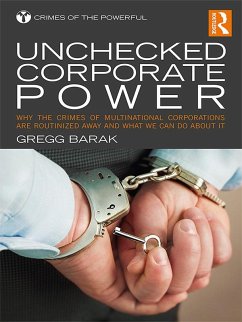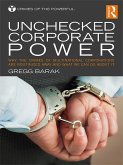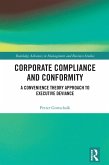Dieser Download kann aus rechtlichen Gründen nur mit Rechnungsadresse in A, B, BG, CY, CZ, D, DK, EW, E, FIN, F, GR, HR, H, IRL, I, LT, L, LR, M, NL, PL, P, R, S, SLO, SK ausgeliefert werden.
Steve Tombs, Professor and Head of the Department of Social Policy and Criminology and Co-Director of the International Centre for Comparative Criminological Research, Open University, UK
"Gregg Barak advances a chastening indictment of contemporary capitalism. Both liberal capitalism and the growing strength of authoritarian capitalism in societies like China afflict profound domination upon citizens. Gregg Barak enriches the conversation about options for strategic regulation and strategic socialist innovation to temper if not tame their power."
John Braithwaite, Distinguished Professor, RegNet School of Regulation and Global Governance, Australian National University, Australia
"Unchecked Corporate Power is a thoughtful and thought-provoking examination of contemporary corporate harms, how economic, political and media elites have made them appear to be the unavoidable collateral damage of honorable profit-seeking, and how the regulatory system tasked with controlling these harms has not only turned them into non-crimes, but has often facilitated their perpetration. More than a critique of corporate harms, Unchecked Corporate Power offers both a call and a model for fundamental restructuring of the political relationships between corporations, the public, and government. It is a must read for both scholars and citizens concerned with the rising power of corporations and the declining power of average citizens."
Raymond J. Michalowski, Arizona Regents Professor, Department of Criminology and Criminal Justice, Northern Arizona University, USA
"In this pathbreaking book, Barak critically examines the roles of multi-national corporations and the state in both routinizing and trivializing major crimes and massive global harms. Using case studies he effectively exposes both the inherent contradictions and the need for change in current regulatory policies. The work not only offers a number of potential solutions, but is a major addition to the sociological and criminological understanding of global white-collar and corporate criminality. I highly recommend it."
Henry N. Pontell, Distinguished Professor and Chair of the Department of Sociology, John Jay College of Criminal Justice, and Professor Emeritus, Department of Criminology, Law and Society, University of California, Irvine, USA









